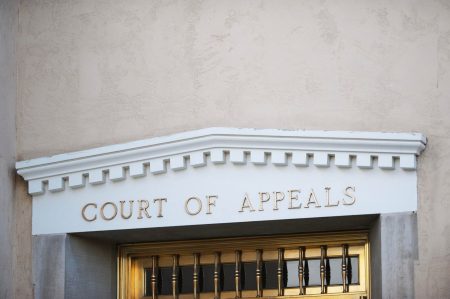The First Step Act (FSA), a bipartisan criminal justice reform bill signed into law in 2018, aimed to reduce recidivism and enhance public safety by granting eligible inmates earned time credits (ETCs) for participating in rehabilitative programs and allowing them to serve a portion of their sentences in prerelease custody. Despite the law’s noble intentions, the Federal Bureau of Prisons (BOP) has faced persistent challenges in its implementation, leading to significant criticism and legal action. Senators Durbin and Grassley, key architects of the FSA, expressed their concerns as early as 2020, highlighting the BOP’s inadequate implementation of the ETC provisions. These concerns, however, have not abated, with continued issues plaguing the implementation process.
One of the central issues revolves around the BOP’s interpretation of the FSA’s prerelease custody provision. While the law allows inmates with sentences exceeding four years to earn credits toward prerelease custody in halfway houses or home confinement, the BOP has treated this provision as discretionary rather than mandatory. This interpretation has resulted in thousands of eligible inmates remaining incarcerated despite accumulating sufficient credits. The American Civil Liberties Union (ACLU) recently filed a class-action lawsuit on behalf of these inmates, arguing that the BOP’s interpretation violates the plain language of the FSA and infringes upon the inmates’ rights. This lawsuit underscores the ongoing struggle to ensure that the BOP adheres to the intent and letter of the law.
The BOP’s implementation struggles extend beyond the prerelease custody provision. Initially, the BOP’s calculation method for awarding ETCs resulted in many eligible inmates receiving no credits at all, despite their participation in required programming. Subsequently, a requirement for inmates to complete a “needs” survey before accruing credits further complicated matters, impacting thousands of prisoners. While the BOP eventually rectified this issue by awarding retroactive credits, the initial delays and confusion underscore the systemic challenges in implementing the FSA effectively. These implementation issues have not only delayed the release of eligible inmates but have also fostered distrust and frustration within the prison system.
Beyond the technical challenges of calculating and awarding credits, the BOP’s communication surrounding the FSA has further exacerbated the situation. A video released by the BOP in July 2024 suggested a proactive approach to placing inmates in community confinement, even referencing the “stacking” of credits earned under the FSA and the Second Chance Act. This announcement, however, has not translated into tangible action, leading to increased tension and even protests within prisons, including a food strike at FPC Montgomery. The discrepancy between the BOP’s messaging and its actions has fueled distrust among inmates and further complicated the implementation process.
The ongoing issues with FSA implementation have drawn significant attention, with numerous reports highlighting the discrepancies between the law’s intent and the BOP’s practices. Individual lawsuits against the BOP have resulted in court-ordered credit awards, yet the BOP has not consistently applied these rulings to update its program statements or internal procedures. This lack of responsiveness has perpetuated inconsistencies and further fueled the perception of arbitrary decision-making. Furthermore, the administrative remedy process available to inmates seeking redress can be lengthy and often proves futile, leaving many to serve out their sentences without receiving the full benefits of the FSA.
While the BOP has acknowledged the challenges and publicly embraced the FSA’s goals, concrete action has lagged behind rhetoric. The closure of six federal prison camps due to decreased populations is a positive development and aligns with the FSA’s cost-saving objectives. However, the core issue of transitioning eligible inmates into community confinement remains unresolved. The ACLU lawsuit, coupled with continued pressure from Congress and media scrutiny, underscores the urgent need for the BOP to address these persistent implementation problems and ensure that the FSA achieves its intended impact of reducing recidivism and promoting public safety. The BOP claims a lack of halfway house capacity as a reason for the delayed transition of inmates to community confinement, yet the capacity remains largely unchanged since the FSA’s enactment, highlighting a critical gap in resources and planning.










